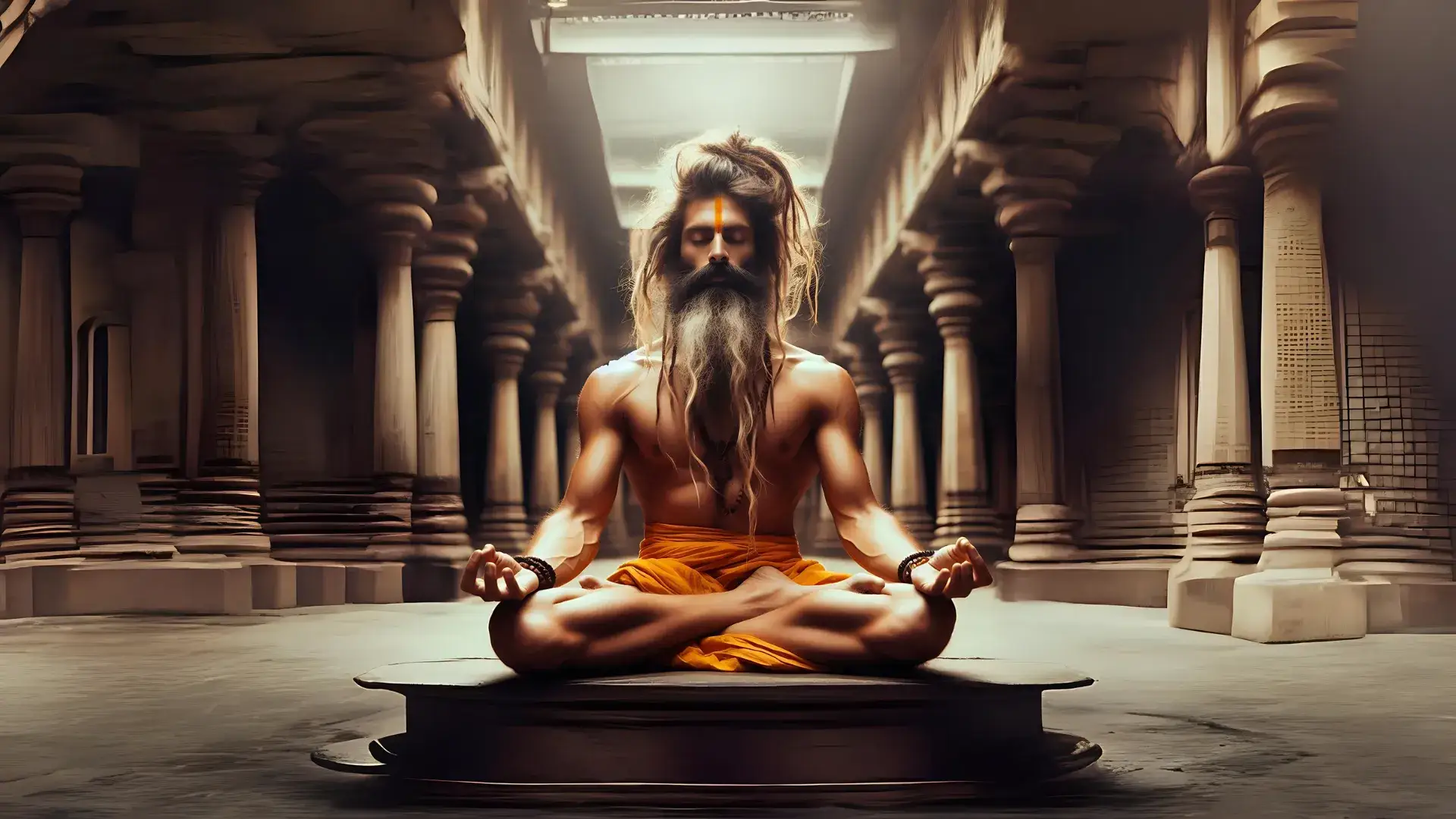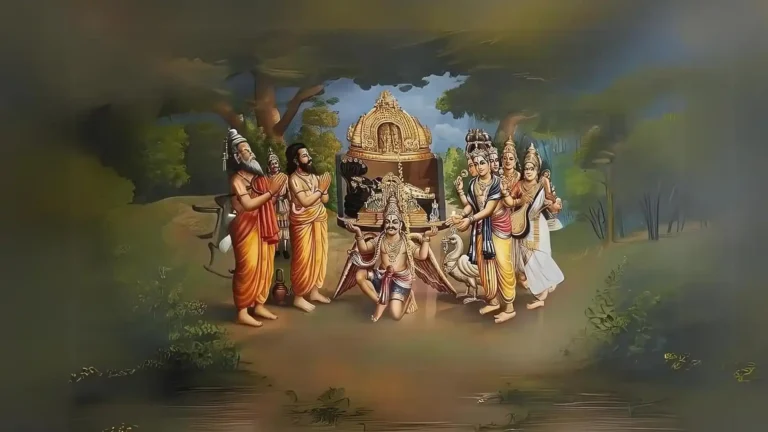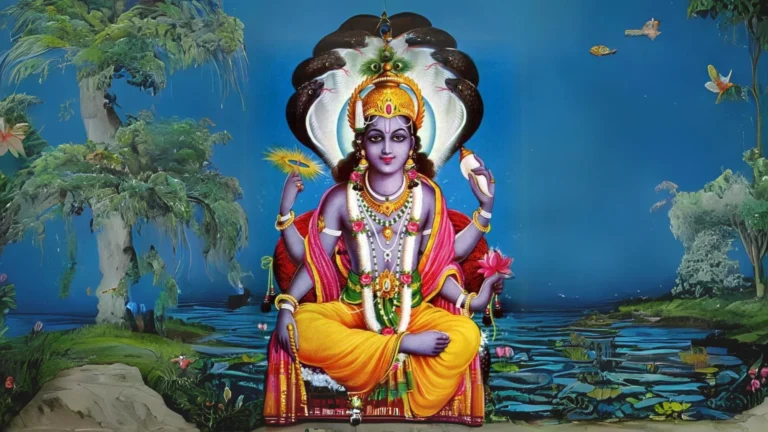Please Like the Blog and Share it for Maximum Reach
Table of Contents
What is Spiritual Yoga?
The general way the common lay man understands Yoga, is something related to health, mental and physical. I am introducing the word Spiritual in addition to Yoga, which means the process of Yoking our smaller Self to the Higher, transcendental domain.
The word Yoga sounds similar to the English word “yoke” which means to join or attach.
The context of this attachment relates to the soul. Yoga thus means connecting the soul, or Jiva back to the source. Paramatma (परमात्मा) or the super soul represents the source. The process of communion of individual consciousness with the Absolute or super-consciousness is Yoga.

Bhakti Yoga and Jnana Yoga
One recognizes the Paramatma and sees the individual spirit different from the super soul. Thus he establishes a relationship with Paramatma. This relationship defines the purport of Bhakti Yoga.
When one sees perfect oneness and cannot tell the individual self different from the Supreme-Self, that realization defines the purport of Jnana Yoga. Here, through intense study and deep observation one knocks down the wall between Individual self and the Super Self.

The Bhakta ensures separate identity. Vedanta normally conforms to the latter approach.
However the follower of Bhakti does not want the separation between his Self and the Supreme to dissolve. Such dissolution, for a Bhakta is like committing suicide.
He wants to enjoy the communion of relationship with the Supreme. Thus a Bhakta maintains himself as “laghu” (लघु) or the small one and the Lord or the Supreme Self as “Vibhu” (विभु) or the mighty one.

Requirements for Jnana Yoga
One’s intellect is weak and corruptible in Kali Yuga or the Iron Age. Spiritual possibilities inside the modern man remains limited. One’s mind is easily corruptible and one does not have the capacity to side with truth.
In such cases, one becomes a slave of the flimsy mind. Such a person shall resort to a life of convenience rather than siding with that which is appropriate and in line with Vedic scriptures.
For a follower of Jnana Yoga, the path of intellect and wisdom, the standard of the practitioner has to be exceptionally high. The practitioner should have intense dispassion and should be unattached with the ways of the world. He should have no interest in the matters concerning the senses and should have overcome lust in its entirety.
Unless the person has an incorruptible exceptional character, for him, following the path of Jnana Yoga shall remain tough. To see God in oneself and to see oneself as the spirit is a colossal undertaking.
Dangers beset the Jnana Yogi
Challenges start arising right from the word go, for a Jnana Yogi. As one starts reading Vedanta and takes up meditation, Maya, the illusive power of the Supreme Being begins her delusive work. The so-called practitioner shall start experiencing growing confidence.
This confidence does not come because of knowledge.
It arises from the depths of the heart, that remains sullied with undetected ignorance.
Unfortunately the practitioner, considers these symptoms as genuine and feels that he is growing in knowledge. In fact, it is quite the contrary.
Ignorance and Arrogance – Difficult to handle
The Scriptures warn us thus: “Poison emerges first from the ocean. Nectar only appears in the end.” This poison of arrogance results with the churning of inner muck that masquerades as high-quality knowledge. Such so-called knowledge takes the practitioner astray.
This egoic tendency has no cure whatsoever. How can the man in a pit hold the rope of Vedanta and come out of the pit by himself? Without a Guru holding the rope at the other end, outside the pit, how can one save oneself?
One needs to fulfil some requirements to take up Jnana Yoga as the means to reach enlightenment. One should have no body-attachment. First, a person practising Jnana yoga should naturally be unattached to his body. On this condition itself 99.99 out of 100 people are out of the race.
Next, one should be free of all other interests other than the subject of Brahman, the source of all life.
7/8 Questions from Sanatana Dharma
The scores generated in this Quiz may or may not be absolute. There may be right or wrong answers to each Question. A percentage towards 100 indicates that you are more aligned to the overall subject matter.
Control on the Senses and Truth
The practitioner should be exceptional in his qualities of humility. He should have complete control over his senses. The practitioner should only seek Truth with absolute disinterest in worldly matters. He should have the capacity to reject that which is false; that which is against inner conscience.
Should be guided by a perfect Jnani. He cannot make any progress unless guided by a strict and perfectly enlightened spiritual master. The spiritual master should have a command on the Vedic scriptures.
The Master should be able to elucidate the scriptures relating to the Upasana Kand (उपासना कांड) of the Vedic scriptures. Now we shall delve into who is qualified to lead a seeker of Truth through Upasana.
Upasana Kand focuses on the nature of the Ultimate Reality

The Upasana Kand of Vedic Literature focuses on the means to attain it as part of the Vedantic teachings within the 4 Vedas. The Guru should also have an in-depth and practical understanding of the Bhagavad Gita.
Modern Day Challenges in Jnana and Bhakti
Is it Possible to attain Jnana all by oneself, through Social Media, YouTube etc?
No, not possible. Jnana is not information but knowledege. Knowledge is an aspect of the soul and has very little or nothing to do with dry information. Jnana can only be transmitted from the heart of an Enlightened master, to the heart of a ready sadhaka.
What are the conditions for a Sadhaka to receive Jnana?
First, the Sadhaka should not yearn for anything other than Bhagavan or Moksha, with no inner hankering whatsoever for anything material. Next, he (should) be fortunate (only decided through the Sukriti, or blessings and Grace accumulated through previous many births), to get a Guru of total abandon, who is a servant to his own Guru and Bhagavan and does not desire anything from his disciples, other than to transmit and share his knowledge, with them. If these preliminary conditions are met, the Sadhaka can attain Jnana, the knowledge of the Higher Self.
In Modern times, does the Guru test the disciples?
We live in strange times. A genuine Guru is disheartened to see the state of youngsters, who are either behind wordly attainments or a servant to their own “spiritual accomplishments”, without care for attaining inner humility. Testing a disciple or a seeker does almost seem impossible because, the ABC of spirituality itself appears distant, for upcoming generations, looking at their state of mind or readines for serious spiritual pursuit.
What is the most important quality desired in Disciples to become spiritually capable?
Humility and humility alone. But the problem is, there are many fake definitions that are floating around that even define humility. Unless the sincere sadhaka shows committed inclination to surrender to the Guru, development of humility shall remain a far away dream. If there is no humility, there is no spirituality. Challenging mentality has to be shunned away and one needs to simply enquire from the Guru in the most humble way, to understand and grasp spiritual precepts. This is the only doorway to Grace, that can induce humility in the heart of the sadhaka.
Motive free relationship between Guru and Disciple
The relationship between such a practitioner and the spiritual master should be based on mutual love for Truth. Their relationship should be above all worldly motives. The spirit of sacrifice and surrender should define the relationship between Guru and disciple.
Other than spiritual perfection, there should be no area of interest common to both the Guru and disciple. The spiritual master should be able to get a complete hold on the practitioner and the practitioner should have complete faith on the spiritual master.
Jnana Yoga is the Path of utter sincerity.
Jnana Yoga means the path of inquiry. The inquiry is towards of understanding one’s inner nature. This can only give results, only if one is blatant, on the path of truth.
It is like walking on the edge of a sharp razor. Without purity in intention and action, one cannot pursue the path of Jnana.
What does the path of Jnana prescribe?
A true Jnani wants to end the duality of the mind. The Jnani tries to go to the root of all questions that arise on the lake of the mind. Karma causes ripples in the mind.
Thoughts and emotions constitute the primary stimulants of Karma. The Jnani needs to be steadfast in his practices. He continues to execute his duties with a contemplative mind-set.
His duty should be to find answers to his questions through the teachings of the Vedanta.
He should also employ well, the meditative means. The goal of meditation is to sharpen the intellect. Logical by nature, a Jnani uses rational means to get to the Truth.
A Bhakta on the other hand uses emotion towards the Supreme to get to the Truth.
The current times are unsuitable for the practice of Jnana as authentic means to get established in Truth. Bhakti is more conducive for the current age. Now let us analyze the conduits of such immaculate Jnana and Bhakti, the Sages.
Who is a Sage?
The Personality blessed by Bhagavan, having attained the goal of Jnana and Bhakti is an epitome of virtues, having transcended the shortcomings that keep him bound to the material plane. Such a person is a sage.
A Sage is one, who is perfectly established in Sanatana Dharma. Like a diseased person displays symptoms of disease; a wealthy man speaks influentially, an alcoholic stumbles while walking, a sage too displays some striking signs.However, it is not possible to understand any true sage entirely.
Sages are mystics and the common man is not wise or incisive enough to estimate their wisdom. How can the stars estimate the magnanimity of the sky? How can the fish estimate the dimensions of the ocean? Similarly, the common man although blessed to know the glory of sages, cannot fathom their enitre powers.
There are a few signs of a true sage that can help us differentiate between the bogus sages from the truly enlightened ones. Here are some 21 Most important signs one can look for, categorized under 6 main headings-
(1) A Sage is never interested in worldly matters.
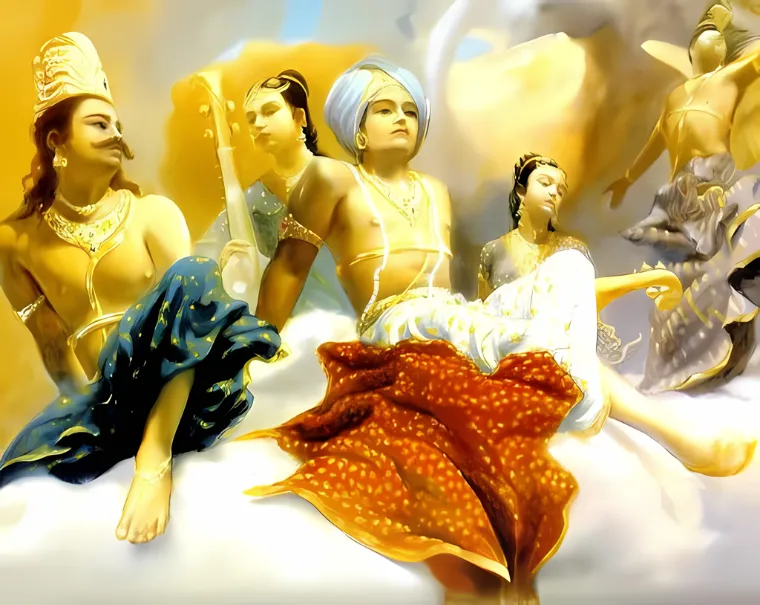
The world is just an amalgamation of distorted thoughts, opinions, and contradicting viewpoints. One person’s view always cuts the other’s opinions and viewpoints.
Hence, after realizing the fallacy of the world, which is basically fuelled by deranged thoughts a sage consciously withdraws from worldly matters.
Thus, transcends the abode of matter. When devotees approach him with material problems, he is least interested. However, out of Grace, a sage might guide living beings, gripped by Maya. This trait might coincide with that of bogus gurus. But, the difference lies in their intention.
A bogus sage might fan the greed levels and prompt the seeker to approach his time and again. But, a genuine sage shows him the right path and advises him/her to just perform the Karma. ‘Leave the rest unto God’, a genuine Sage says. Hence, he does not worry about anybody’s personal matters.
Instead, he refrains from matters related to body, wealth, property, business, etc.
(2) The Sage always keeps his attention on the Lord.
A true sage, as discussed earlier has no interest in worldly affairs. But, the mind is such that it cannot remain without thoughts! This might be a personal experience for you as well.
Having thoughts is not at all bad. But, having the wrong thoughts can cause great harm.
In contrast, a person who is always dawned with thoughts of Bhagawan His devotees, pastimes, glories, abode, name, etc is a sage.
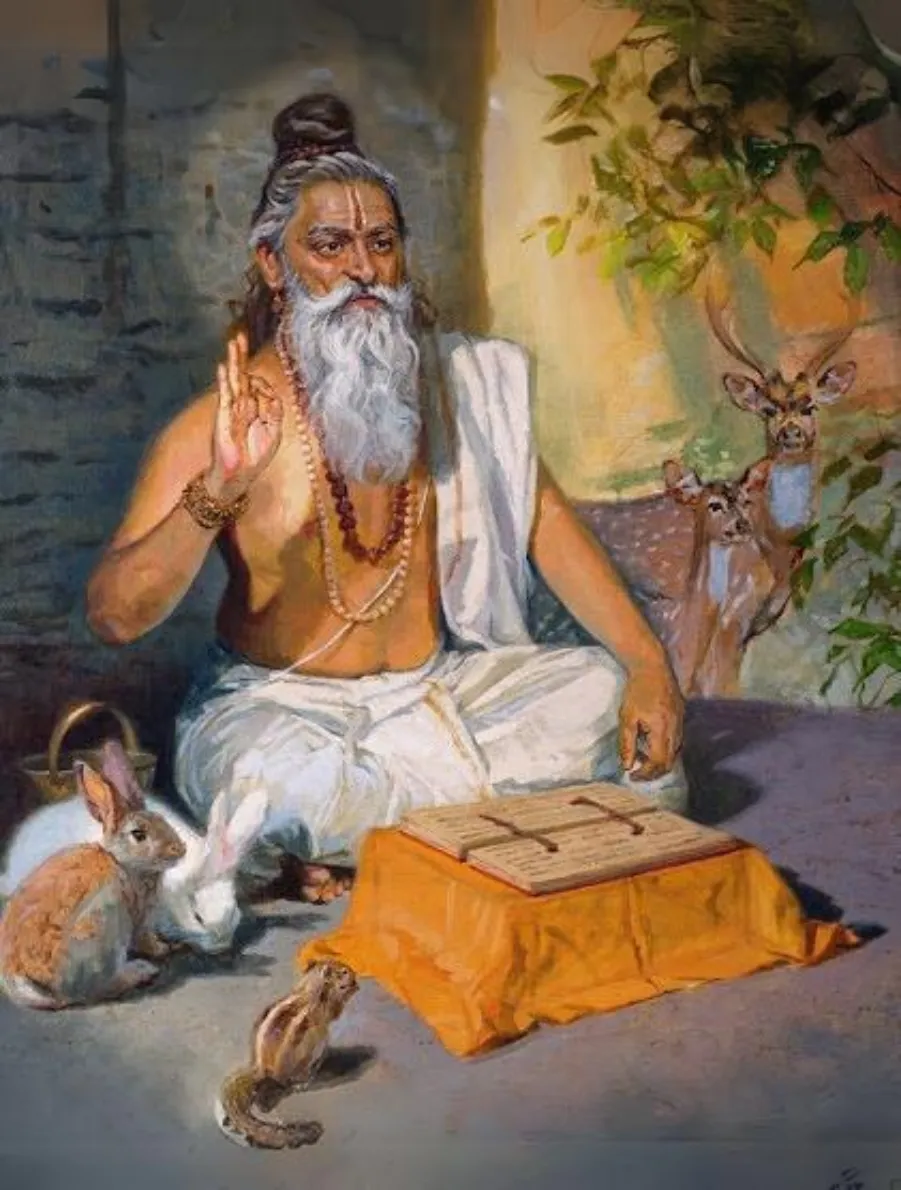
It is not the other way round, that a sage always thinks about God. Instead, anybody who thinks about God is a sage! Going by this definition of a sage, even a householder can be a sage.
He can outpass a sanyasi who constantly looks for profits from his disciples and acquaintances. Such a sanyasi instantly loses the position of a renunciant.
Now, let me tell you that it is difficult to become a sage in this modern world, where there are so many material objects. In fact, even those who consciously live in Ashrama for their entire lives might not necessarily be true sages.

If worldly objects enamor such a person and even for a moment if he deviates from God, he immediately loses all the benefits of living in the renounced order of life. His Tapasya (austerity) of living in seclusion stands rejected as he fails to walk towards his aim.
On the other hand, a true Sanyasi or a Sage is the one who realizes the futility of the world and constantly engages in the service of the Lord. This service he might personally do for his deities or through Manas Pooja (or mental worship).
(3) A Sage cannot be gauged by ordinary living beings.
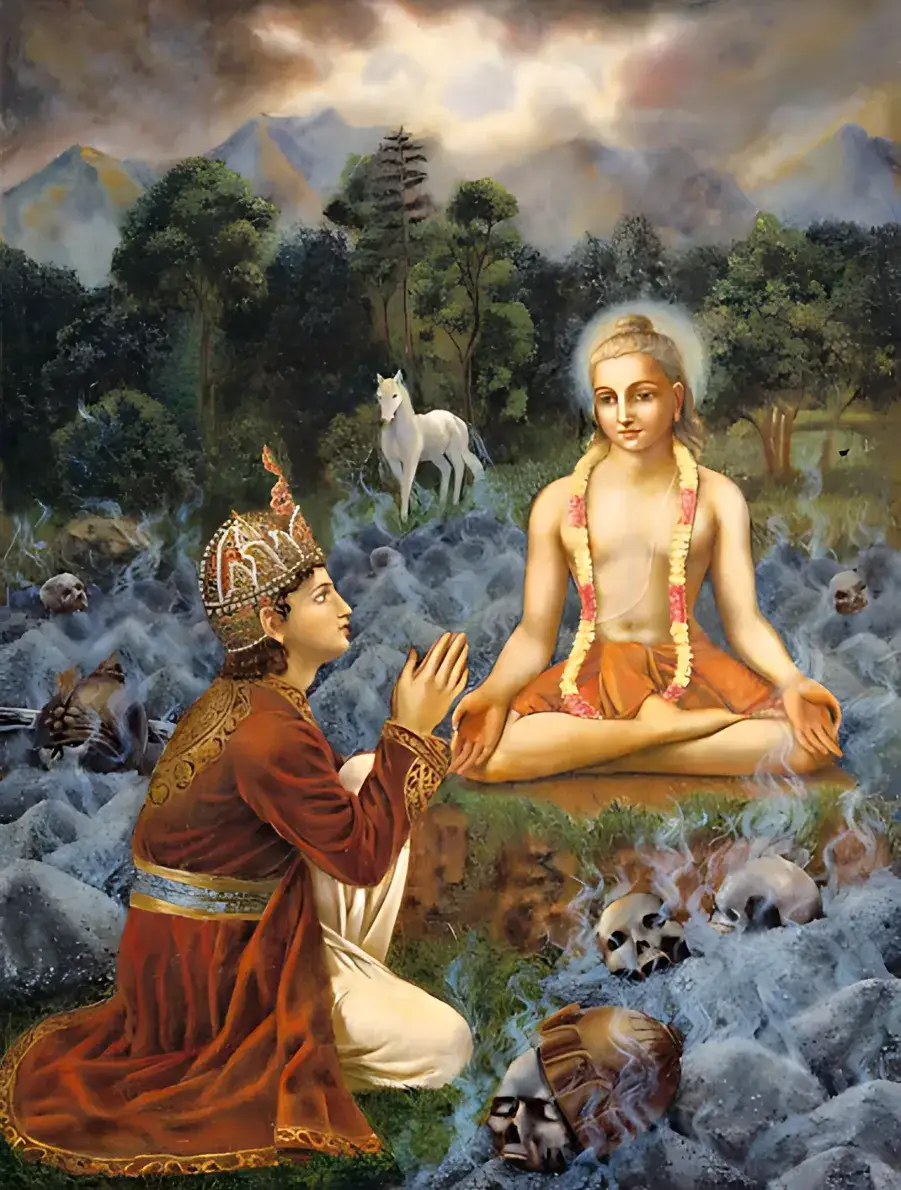
Only a clean-hearted seeker can get a glimpse of the true nature of a sage. Otherwise, no mortal on earth can estimate the nature of a true sage. Hence, Sadhana is the only common cord, that keeps a sincere seeker attached to the benevolent sage. On the other hand, if a person approaches him with selfish motives, he will immediately face rejection and probably humiliation.
Such materialistic people can never get to realize a sage. Instead every time they meet him, they shall only come back home with bitter experiences. Sages might look different for different people. But, in reality, all of them only connect with that one Supreme reality.
He has nothing to do with the world.
(4) A Sage never hankers for Power, Name, and Fame.

These trio, Power, Name, and Fame are signals of doom for a sage. If a sanyasi or a sage, if associated with any institution where this trio are freely available to him, then know for sure, that the spiritual powers are on the verge of declining. In a short span, the sage will no longer hold importance in the domain of God.
Common folks might celebrate him as an enlightened sage. But, a true seeker and the Lord strongly object to such a fallen sage, saint, or a sanyasi. Name, fame, and power are symbols of deep attachment. They are hallmarks of the 6 vices: Lust, Anger, Greed, Jealousy, Envy, and Attachment. Hence, instead of renouncing these vices, the mesh of Maya Devi, the Illusory Potency of the Supreme Lord, entraps him without breathing space.
He no longer remains a sage. He becomes a businessman.
(5) A True Sage expects Support from the Lord Alone
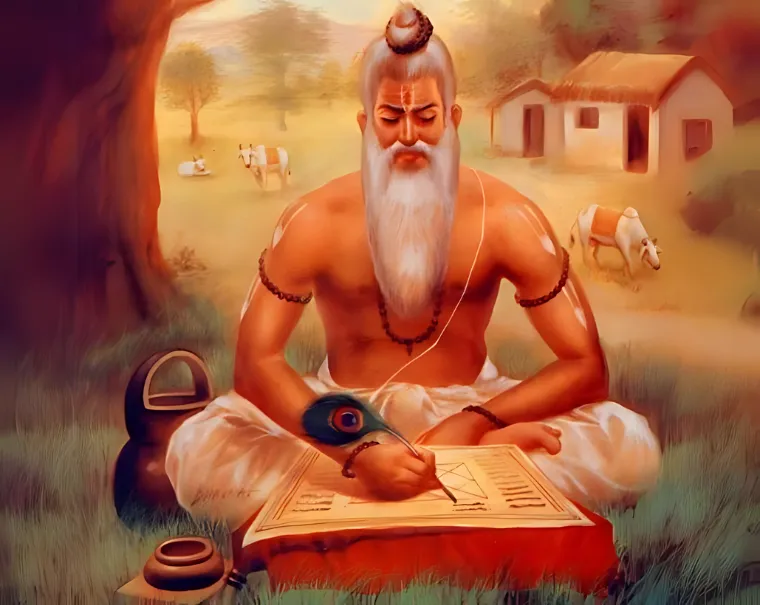
Seva, done for a sage by a devotee, benefits the latter and not the sage. It is done to accumulate Sukriti (or spiritual merit). A sage is not looking for protection and support from the world. He solely depends on God and His promise made in the Gita.
In the Gita Sri Krishna promises His dear, surrendered devotees thus:
” If a person, accepts that I am the Supreme and unconditionally surrenders unto Me, he shall no longer worry for his sustenance. Because I take complete ownership of my surrendered devotees. In no manner should they worry, as I take complete responsibility for their upkeep”
A pure sage is one who trusts and has potless, unshakeable faith in the Lord and His promise made to him. Hence, he worries not the least about his upkeep.
(6) A Sage interacts by the Lord’s Will.
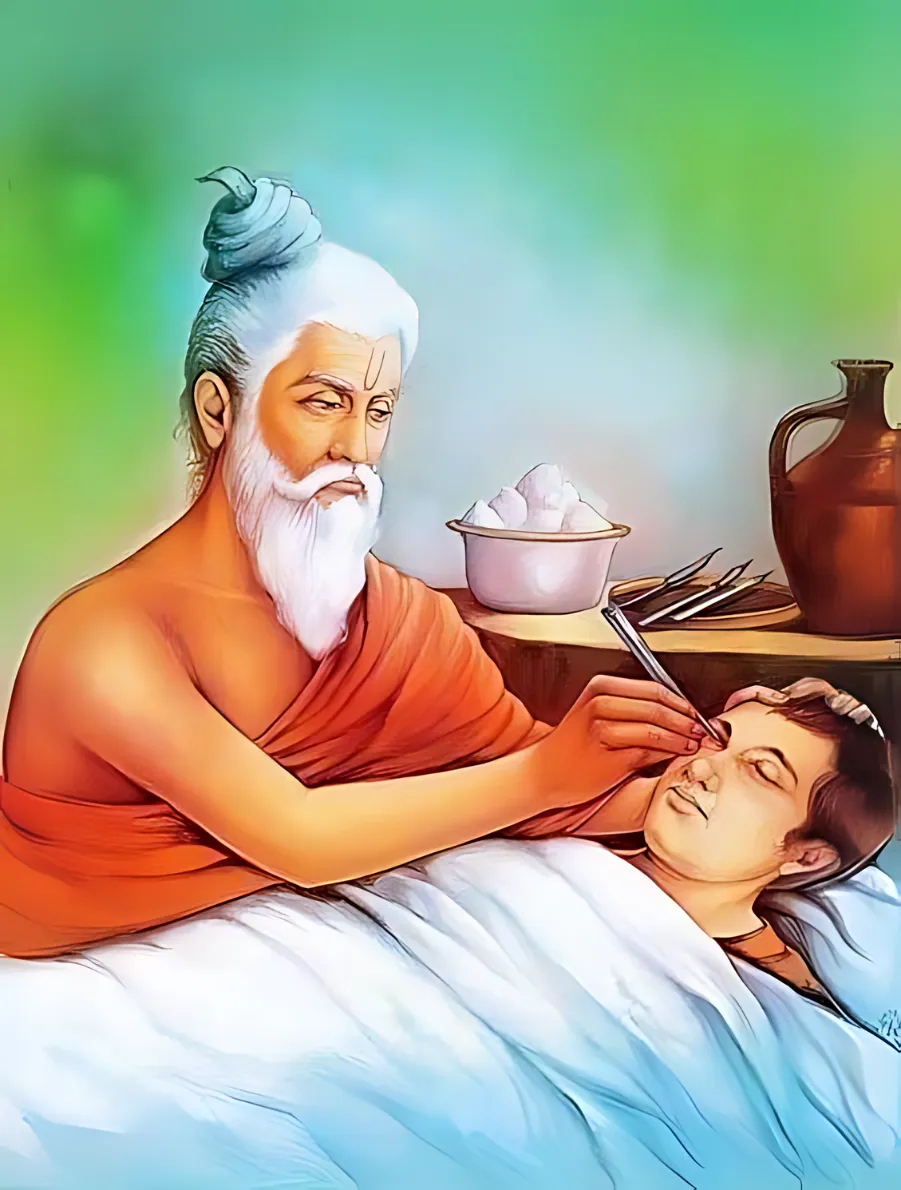
A true Sage is employed by the Lord Himself. He works for the Lord’s cause. This might sound confusing to you. Let me ask you a question now. What balances the world and when shall imbalance occur?
The answer is: The world is still in the balance as along with evil and good people, spiritual people also exist.
Good people may become bad, or may attain wisdom by the grace of enlightened ones. The Bad may become worse or turn to spirituality, owing to a revival of their Sukriti (Spiritual Merit of previous lifetimes). Both these types of persons, good or bad, have a scope of becoming spiritual, in this lifetime or in future lifetimes So at any point in time, they can enter a transition phase, towards spirituality.
These form two extreme poles of the world. To maintain a balance between the good and bad, the perfected spiritual beings, namely the sages or Bhakta, contribute immensely in the maintenance of the World. Hence, retaining the balance, the sage helps the Lord.
But, in the progressing age of Kali, the rapid decline of spiritual people has become a growing concern.
Hence, by the Lord’s Will, some enlightened sages interact with society. However, the above criteria, still remain intact. Even though a sage might interact with society, materialism, desire, or passion, never linger around such a sgae with heightened consciousness.
The vices can in no way get the better of the sage. He will never try to impress society as he constantly tries to only satisfy the Lord. Such a pure sage never rises to peaks of fame such that he disengages from the service of God, getting embroiled with the devious crowd that ensemble him.
This shall never happen. If this happens, we must conclude that it is a calculation of Karma and he needs to rework on his mind. When he interacts with society he intends that they should spiritually prosper and gain spiritual insight. He never prays that they become rich, or get a promotion, etc.
He does not wish material well-being for anybody as it is always short-lived.
Instead, he blesses the sincere seekers with spiritual, everlasting happiness.
Please Like the Blog and Share it for Maximum Reach

